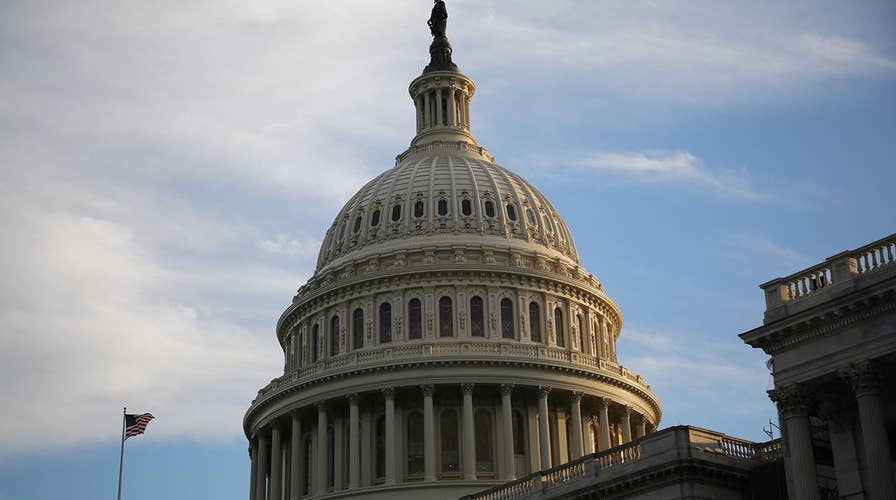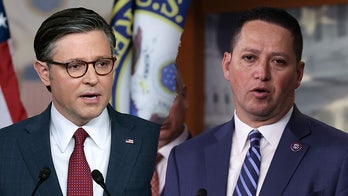Senate approves spending package on debt, Harvey relief
All 'no' votes were from Republicans; Mike Emanuel reports
The Senate on Thursday approved a short-term suspension of the debt ceiling as part of a combined spending bill that also provides Hurricane Harvey relief funds, sending the package to the House where conservatives are threatening to oppose it.
The measure cleared the Senate on an 80-17 vote; all those opposed were Republicans.
The package would fund the government and extend U.S. borrowing authority through Dec. 8, as well as provide an initial $15 billion in storm recovery money. This would avoid a government shutdown at the end of the month, while teeing up a new battle over spending and the national debt in December.
The terms were struck as part of a controversial deal a day earlier between President Trump and congressional Democratic leaders. GOP leaders like House Speaker Paul Ryan, R-Wis., had pushed hard for a longer-term debt-ceiling increase, but House Minority Leader Nancy Pelosi, D-Calif., and Senate Minority Leader Chuck Schumer, D-N.Y., prevailed during a meeting Wednesday in convincing Trump to back a three-month deal.
Fox News is told the deal with Democrats blindsided GOP leadership.
Nevertheless, Senate Majority Leader Mitch McConnell, R-Ky., agreed to push that deal to the floor Thursday afternoon.
The measure, however, faces turbulence on the House side, which a day earlier overwhelmingly approved a bill that dealt only with Harvey relief money.
Conservatives are unhappy about any debt-ceiling increase that does not include spending reductions and other changes.
Rep. Mark Walker, R-N.C., chairman of the Republican Study Committee, the largest bloc of conservatives in the House, wrote to Ryan on Thursday opposing the measure and warning that many Republicans will not support the deal.
“While some have advocated for a ‘clean’ debt limit increase, this would simply increase the borrowing authority of the government while irresponsibly ignoring the urgency of reforms,” he wrote. “Worse yet is attaching the debt limit to legislation that continues the status quo or even worsens the trajectory on spending, such as the deal announced yesterday by the President and Congressional Leadership. The RSC Steering Committee opposes this proposal.”
He suggested a slew of changes that could win Republicans votes, such as repealing ObamaCare and a balanced budget amendment.
It is unlikely such big-ticket items would be addressed as part of this deal. Without changes, Walker’s letter points to broad Republican opposition in the House – however, the package could still pass with a combination of Democratic and GOP votes.





